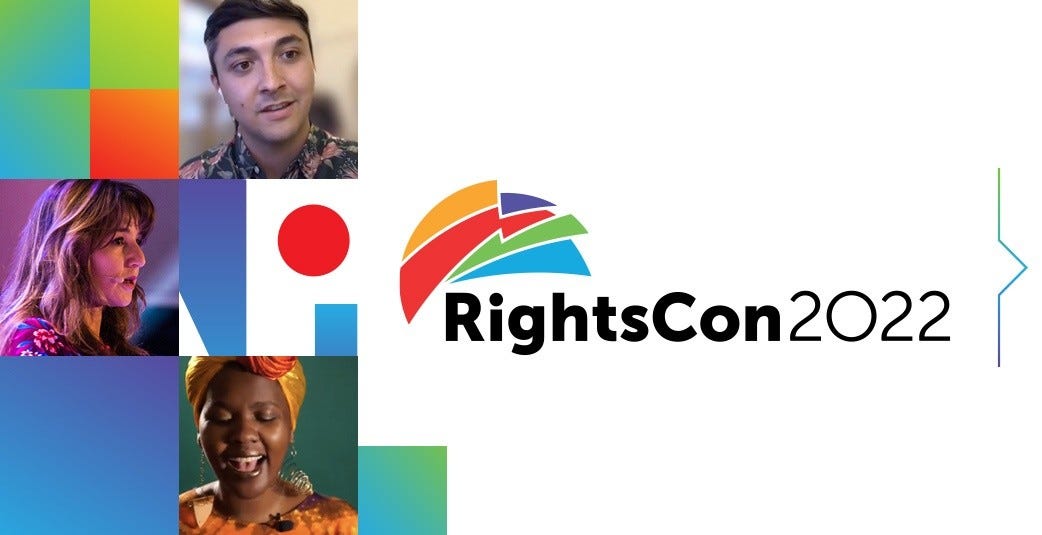TikTok disturbs Kenya elections, disinformation laws silence dissent, and climate 'culture wars' delay climate action
Also, Meedan joins RightsCon 2022
Hey Checklisters!
We hope you’re staying safe and healthy.
In this edition, we look at the role social media platforms are playing ahead of Kenya’s general election. According to a recent Mozilla report, TikTok is being used to share media containing hate speech, incitement, and other political disinformation.
In India, legislators are proposing an appeals panel with the veto power to reverse content moderation decisions made by big social media companies. If enacted, it would be the first time that a nation creates an appeals panel of this kind.
Additionally, we look at new research into the latest online strategies used to derail climate action. A new study focusing on climate disinformation and climate denial has found that delay, distraction and misinformation are increasingly being used as tactics to hinder the rapid climate action required.
Finally, Egypt (168th out of 180 on the World Press Freedom Index) is again prosecuting journalists on charges of spreading fake news. The recent decision targets 17 journalists accused of spreading misinformation about the local authorities’ mismanagement of the pandemic.
If there are updates you would like us to share from your country or region, please reach out to us at checklist@meedan.com.
The Checklist is currently read by over 1000 subscribers. Support us by sharing this issue with friends and colleagues.
The latest top stories
Disinformation on TikTok Gaslights Political Tensions Ahead of Kenya’s 2022 Elections (Mozilla Foundation)
Ahead of Kenya’s general election this August, an investigation supported by the Mozilla Foundation has identified over 130 TikToks containing hate speech, incitement, and other political disinformation. Collectively, these videos have amassed millions of views, and many breach TikTok’s own terms of service, community guidelines, and policies. The videos were linked to 33 TikTok accounts, and used popular political hashtags to gain visibility.
"Kenya’s democracy carries a tainted past of post-election violence. Now, political disinformation on TikTok – in violation of the platform’s own policies – is stirring up this highly volatile political landscape. Meanwhile, TikTok has shown it is incapable of addressing this problem” — Odanga Madung, Mozilla fellow
India considering appeals panel with power to reverse Facebook, Twitter and YouTube content moderation decisions (TechCrunch)
According to the current law, content moderation decisions by social media giants such as Facebook, YouTube and Twitter can only be appealed to a court. India’s Ministry of IT and Electronics said in a statement that proposed “new accountability standards” are aimed at ensuring that the “constitutional rights of Indian citizens are not contravened by any Big-tech Platform.” The current rules also require significant social media firms operating encrypted messaging services to devise a way to trace the originator of messages for special cases. Several firms, including Facebook’s WhatsApp and Signal, have not complied with this requirement. WhatsApp last year sued the Indian government over this requirement.
By amending its Information Technology (IT) rules, India is proposing to create an appeals panel with the veto power to reverse content moderation decisions of social media firms. If enacted, it would be the first time globally that a nation creates an appeals panel of this kind.
Egypt to prosecute 17 for 'fake' Covid-19 news (Al-Araby)
An Egyptian media watchdog has denounced 'a series of persecutions' targeting Egyptian journalists abroad. Egypt prosecuted 17 journalists and media staff on charges of spreading fake news about the management of the Covid-19 pandemic by Egyptian authorities. Egypt ranks 168th (out of 180) on Reporters Across Borders (RSF)'s 2022 World Press Freedom Index. Around 500 local and international news outlets and websites blocked in Egypt.
"This follows a series of previous persecutions against Egyptian media workers abroad, including placing many of them on terrorism lists and travel bans, and failing to renew their passports" — Arab Media Freedom Monitor
Climate policy dragged into culture wars as a ‘delay’ tactic, finds study (The Guardian)
Climate policy is being dragged into the culture wars with misinformation and junk science being spread across the internet by a relatively small group of individuals and groups, according to a study. The study, published by the Institute for Strategic Dialogue and the Climate Action Against Disinformation coalition, found that although outright denials of the facts of the climate crisis were less common, opponents were now likely to focus on “delay, distraction and misinformation” to hinder the rapid action required.
"Our analysis has shown that climate disinformation has become more complex, evolving from outright denial into identifiable ‘discourses of delay’ to exploit the gap between buy-in and action." — Jennie King, head of climate disinformation at the Institute for Strategic Dialogue
What’s new at Meedan
Meedanis at RightsCon 2022
Some of you might have attended sessions at the RightsCon 2022 summit in the past few days. Four Meedanis joined the summit as moderators and speakers: Our colleague Sneha Alexander, program associate for the Check Global program, moderated a session on cross-border disinformation, focusing on the flow of disinformation that originates from beyond borders to destabilize the political scene and polarize societies.
Nat Gyenes, Director of the Digital Health Lab at Meedan, organized a workshop on public health and content moderation practices. Participants were invited to develop new collaborative structures and build proactive relationships between social media companies, researchers and practitioners.
Jenna Sherman, Digital Health Lab Program Manager, gave a lightning talk, outlining the science behind the health harms of stigma and what proactive steps could be taken to prevent it online.
Megan Marelli, Senior Program Manager of the Digital Health Lab, also gave a lightning talk that focused on the connection between health and climate and what lessons can be learned from addressing COVID-19 misinformation over the past two years when covering the climate crisis.



